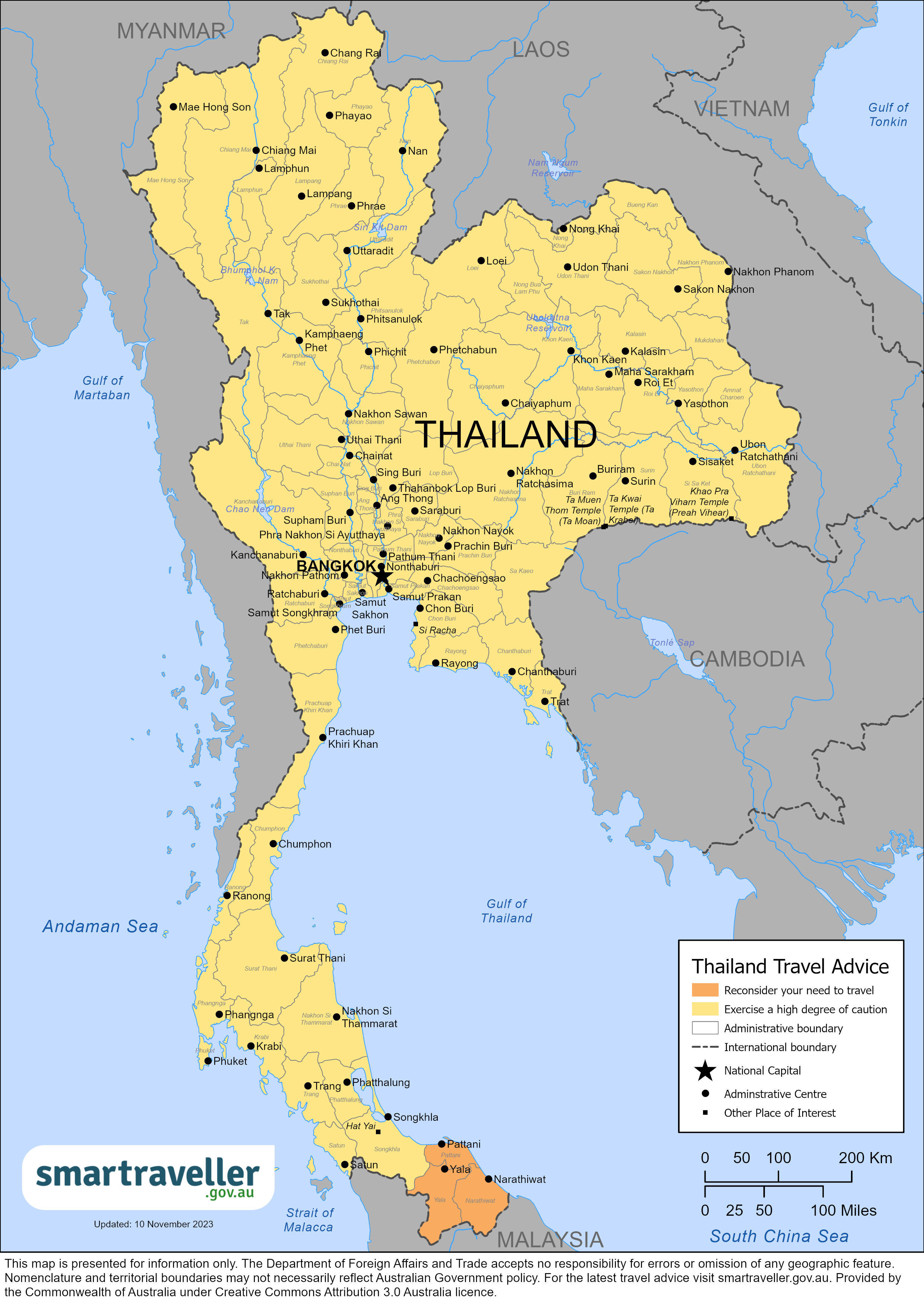Driver’s permit
To drive a car or motorcycle in Thailand, you’ll need a valid Australian driver’s licence for the type of vehicle you’re using.
To drive a motorbike, you’ll need a valid motorcycle licence. Some rental companies will tell you otherwise.
You are required to have an International Driving Permit (IDP).
Don’t drive any vehicles not covered by your Australian licence.
The Department of Land Transport issues Thai driver’s licences. Contact them to confirm:
- your eligibility
- what documents you need to apply
The legal driving age in Thailand is 18.
Road travel
Thailand has one of the highest traffic-related fatality rates in the world. Motorcyclists are most at risk.
Road accidents are common, including in resort areas such as Phuket, Pattaya and Koh Samui.
Driving in Thailand is dangerous due to:
- speeding
- reckless passing
- ignoring traffic laws
Be extra careful during holidays, such as Songkran (Thai New Year). Alcohol use and congestion are worse during these times.
Don’t drink and drive.
If you’re walking, use overhead walkways. Look in both directions before crossing streets, even at marked crossways.
More information:
Motorcycles
Under Thai law, motorcycle riders and passengers must wear a helmet. However, hire companies or motorcycle taxis rarely provide helmets. You may need to shop around to hire a helmet.
Australians are regularly injured or die in motorbike accidents in Thailand. Alcohol is often involved.
If you’re in an accident, police may detain or arrest you until compensation is agreed. This can often cost thousands of dollars.
Many vehicle hire companies don’t have insurance.
If you have a motorcycle accident, you could be responsible for any damages, loss or costs associated with injury to others. The embassy can’t help you negotiate on compensation demands.
Lawyers who can represent you are available from:
If you plan to hire a motorbike, make sure:
- your insurance policy covers it
- you have a valid motorcycle licence
- the hiring company has comprehensive and third-party insurance
- you know the excess you would need to pay if you have an accident
- you always wear a helmet
Don’t drink and drive, or drink and ride.
Never give your passport as a deposit or guarantee.
Taxis, tuktuks and motorcycle taxis
Official, metered taxis are generally safe and convenient. Be alert to possible scams and safety risks.
Be aware of apparently friendly taxi or tuktuk drivers who offer you cheap tours. They will take you to shops where they receive a commission. You may be overcharged or sold worthless goods or gems.
Before you get in an unmetered taxi, tuktuk or motorcycle taxi, agree on the fare and the route.
Make sure your bags are secure when you’re travelling in a tuktuk or motorcycle taxi.
Never put yourself in danger by confronting a taxi, tuktuk or motorcycle taxi driver. Call the Tourist Police on 1155 if you need help.
Be careful when opening taxi doors. Look out for other vehicles, pedestrians and cyclists.
Sea travel
Ferry and speedboat travel can be dangerous. Serious incidents involving tourists have occurred and people have died.
If you plan on travelling by boat or ferry:
- check safety standards are in place
- check there is enough safety equipment for everyone
- wear your life jacket at all times
- avoid travelling after dark
- don’t get on overcrowded boats
Air safety
DFAT doesn’t provide information on the safety of individual commercial airlines or flight paths.
Check Thailand’s air safety profile with the Aviation Safety Network.
More information:

